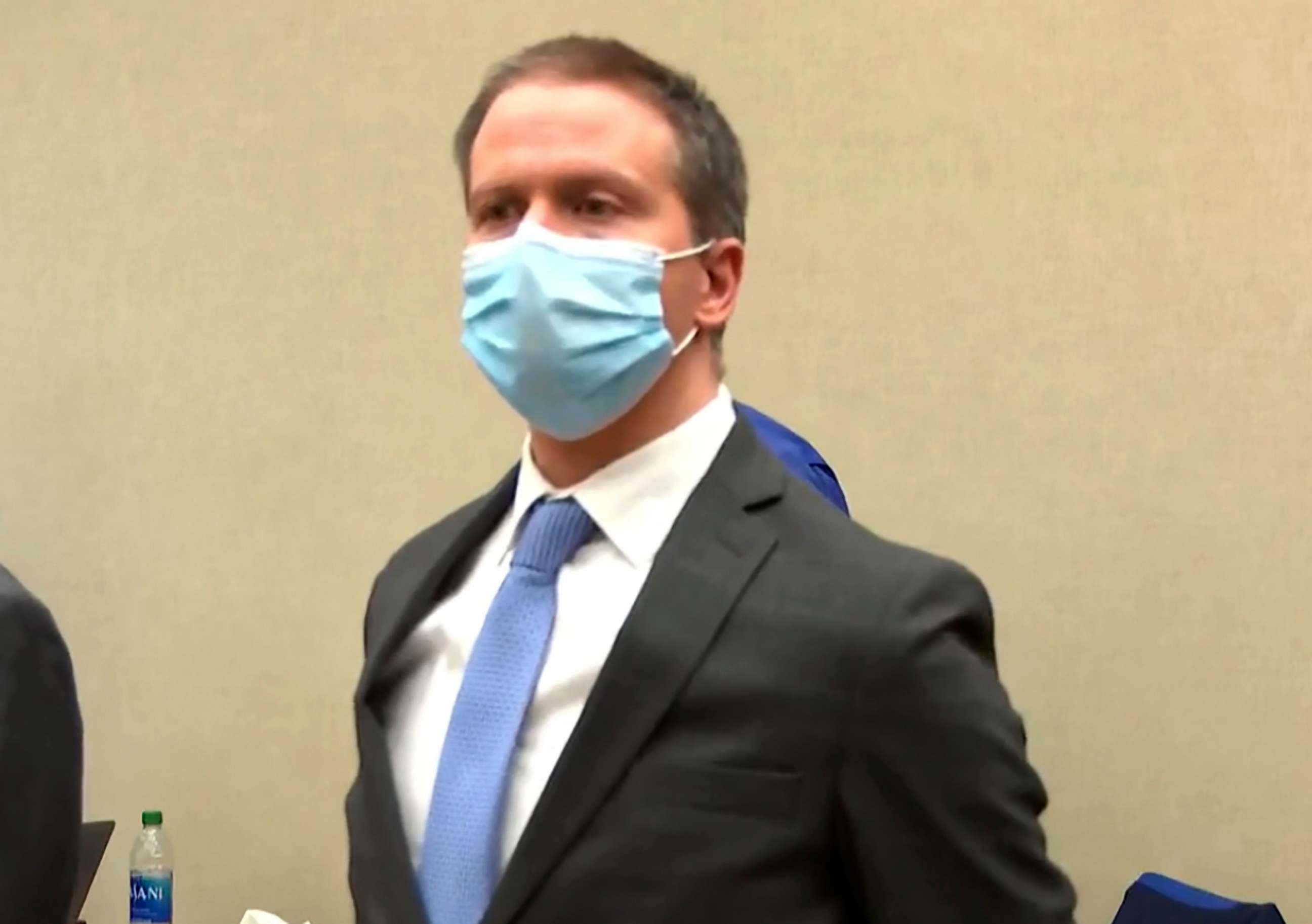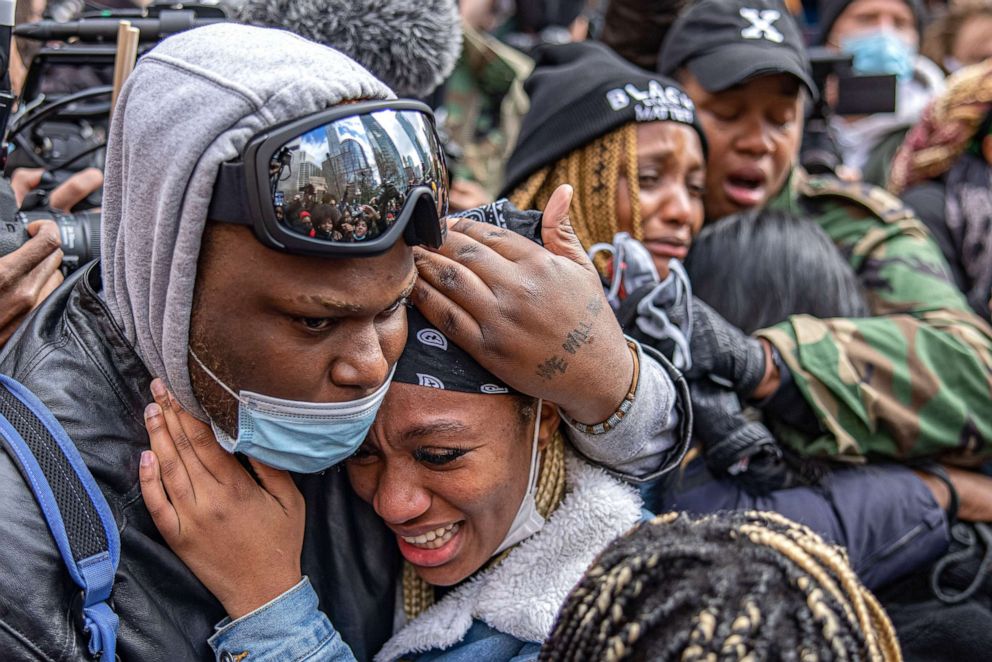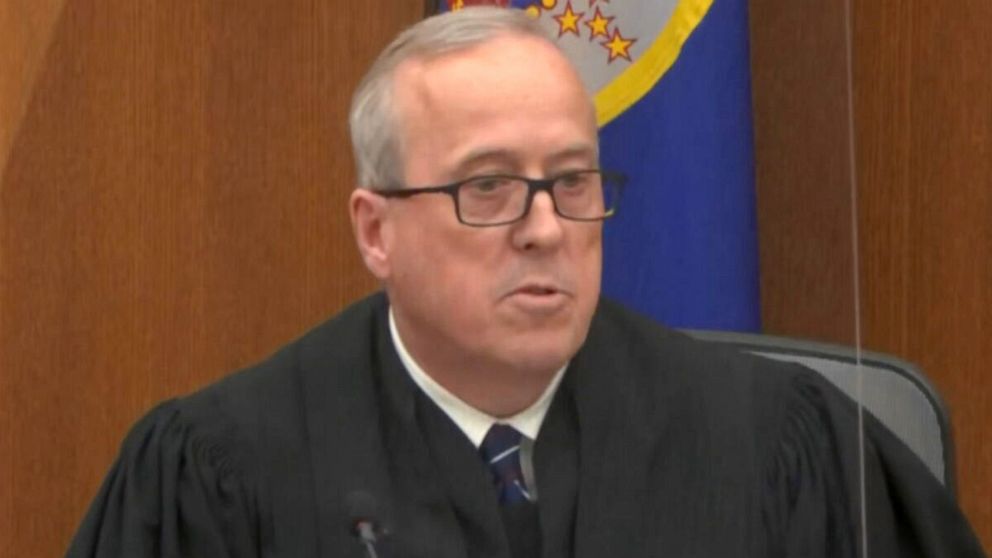Here's how Derek Chauvin could try to get verdict overturned on appeal
Experts say chances of a successful appeal are "slim to none."
Derek Chauvin’s legal battle is far from over.
The nation watched with bated breath on Tuesday as the former Minnesota police officer was found guilty of second-degree murder, third-degree murder and second-degree manslaughter in the May 25, 2020, death of George Floyd in Minneapolis.
Chauvin will have 90 days to appeal the verdict, under Minnesota law, and it could take about a year for the appeal to run its course, according to Paul Applebaum, a Minnesota criminal defense lawyer.
Following the verdict, Judge Peter Cahill announced Chauvin’s sentencing hearing will take place in eight weeks.
Chauvin will only be sentenced on the second-degree murder charge because, per state law, if a defendant is convicted of two or more felony offenses from the same incident, the defendant is punished for the “most serious” of the offenses.
The maximum sentence for second-degree murder is 40 years in prison, but Minnesota sentencing guidelines suggest he's more likely to receive up to 15 years, based on his lack of a prior criminal record.

All three charges are eligible for appeal under Minnesota state law -- Chauvin could request the verdict be overturned and he be granted a new trial
Chauvin could seek to challenge the verdict based on a number of grounds, including arguing the jury was prejudiced by intense media coverage of the case and the $27 million settlement won by George Floyd’s family to settle a civil lawsuit filed over his death. That settlement was reached during jury selection.
After the settlement was announced, Chauvin’s defense attorney Eric Nelson requested a delay in the trial or a change of venue, arguing the settlement had an “incredible propensity to taint a jury pool." Cahill denied that request on March 19.
Cahill’s ruling to not move the trial or delay proceedings could be challenged as part of the appeal. The decision to sequester the jury for only deliberations could also be an appellate issue.
"Most of the arguments are going to center around the publicity, because being downtown Minneapolis, it was like the Green Zone in Iraq where the U.S. military was living. I've never seen anything like that -- Rodney King wasn't like that, O.J. Simpson wasn't like that," Applebaum told ABC News.
"First you have the pretrial publicity, which was horrific if you're the defendant. For almost one year, it's just been a daily barrage of negative emotions and feelings towards the defendant. Then you'd have the $27 million settlement on the eve of the trial, which is horrific for the defendant in terms of the City of Minneapolis, his employer, giving $27 million payout for his conduct," he added.

Another strategy in the appeal could be pointing out the uproar over the fatal police shooting of Daunte Wright on April 11 in the Minneapolis suburb, which reignited protests in the state.
Chauvin's attorney could also cite comments from California Rep. Maxine Waters, who urged protesters over the weekend to “get more confrontational” if Chauvin was found not guilty -- a comment Nelson used to request a mistrial. Cahill denied that motion but admitted the comments were controversial.
“I’ll give you that Congresswoman Waters may have given you something on appeal that may result on this whole trial being overturned,” Cahill said.
"All of these things most certainly have spilled over into the trial," Applebaum said. "Prosecutors will probably argue it doesn't matter where we try, this evidence was so overwhelming. No amount of negative publicity would change the verdict."

Chauvin's lawyers could also focus the appeal on challenging the third-degree murder charge. Under Minnesota law, third-degree murder is defined as an act committed “without intent to effect the death of any person, causes the death of another by perpetrating an act eminently dangerous to others and evincing a depraved mind, without regard for human life.”
Former Minneapolis police officer Mohamed Noor, who was convicted of third-degree murder in the 2017 death of Justine Ruszczyk Damond, filed an appeal on that charge with the Minnesota Supreme Court.
Noor’s appeal, which is still pending, will focus on if a person can be convicted of third-degree murder if the actions of the defendant only targeted a single individual, not multiple, and if recklessness of the action warrants charges of “evincing a depraved mind,” according to the Star Tribune.
While Noor could argue that his actions only targeted Damond and no one else, Chauvin could similarly argue that he didn’t harm any bystanders in Floyd’s death.
The original charges against Chauvin included third-degree murder, but Judge Cahill threw out that count in October, saying prosecutors could not show probable cause that Chauvin's actions put people other than Floyd at risk. Prosecutors fought to include the charge and the Minnesota Court of Appeals ordered Cahill to reexamine the third-degree charge saying the application of the count in Noor’s case established a precedent and in March Cahill reinstated the charge. However, this may not be an effective route to pursue as Chauvin was also found guilty of unintentional second-degree murder, a more serious charge.
Despite having a number of ways to challenge the verdict, the statistics suggest Chauvin has an uphill battle. The National Post-Conviction Project, a nonprofit, says 90% of civil and criminal appeals are denied in the United States.
Applebaum said Chauvin's prospects for a successful appeal are slim.
"Chances are slim to none and slim just left town," he said.




